
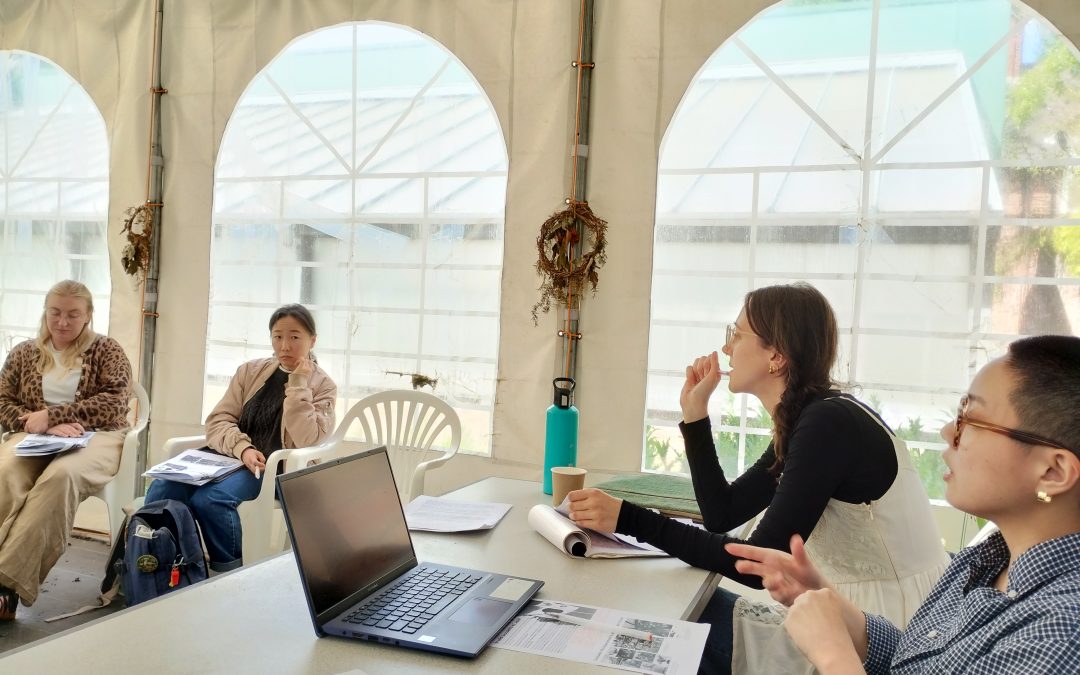
PGR Mini-Symposium of the Plant-Human Research Network: Ecological Grief, Multispecies Kinship, and the Politics of Vegetal Life
Scott Backrath and Teodora Noszkay discussing Plant-human Research network and creative, critical, and relational approaches to understanding the natural world.
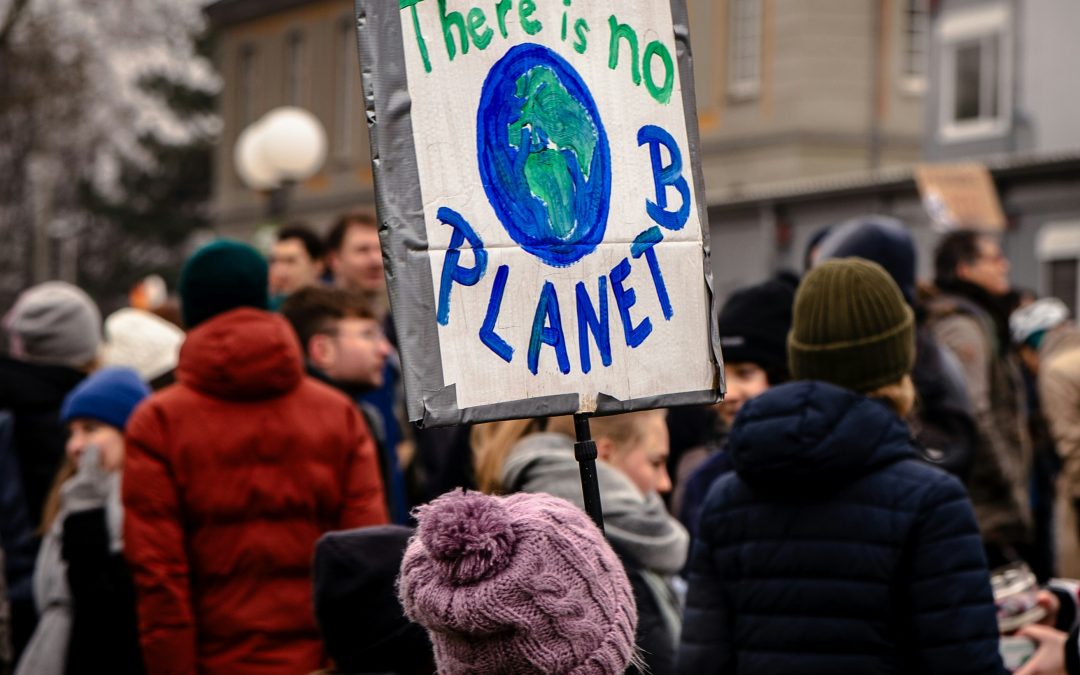
Legal Frontlines in the Climate Crisis: Insights from the University of Manchester’s Environmental Activism Workshop
Yusra Suedi and Clare Cummings reflect on the potential – and the limits – of the law as a tool for climate justice in the face of escalating protest restrictions and environmental threats.

Rethinking Care: Sociological Perspectives from the Classroom
Students from the UoM’s new MA “Science, Sustainability and Society” explore today’s sustainability issues.
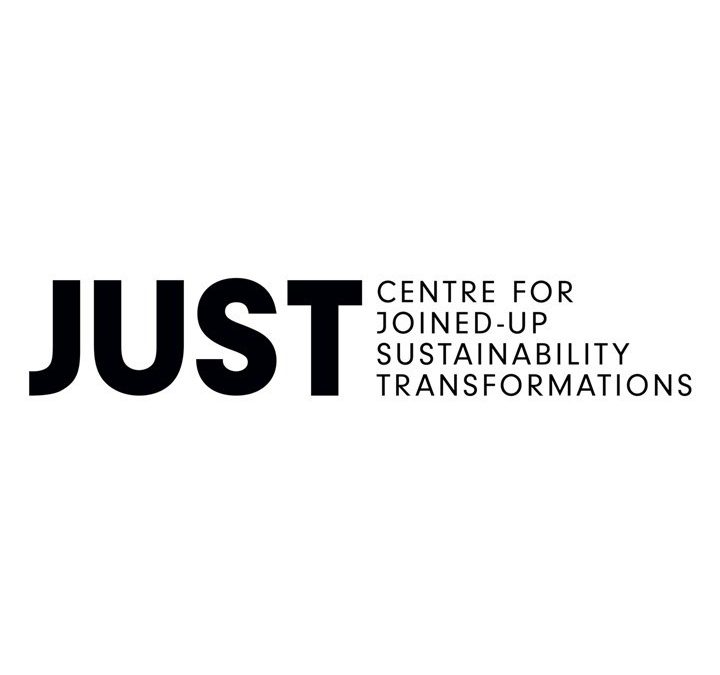
“We want to build capacity for citizens to research and propose what works best for them and to advocate on their own behalf”: JUST Centre Interview
Sherilyn MacGregor, Mat Paterson, and Helen Holmes on the ‘Joined-Up Sustainability Transformations’ approach
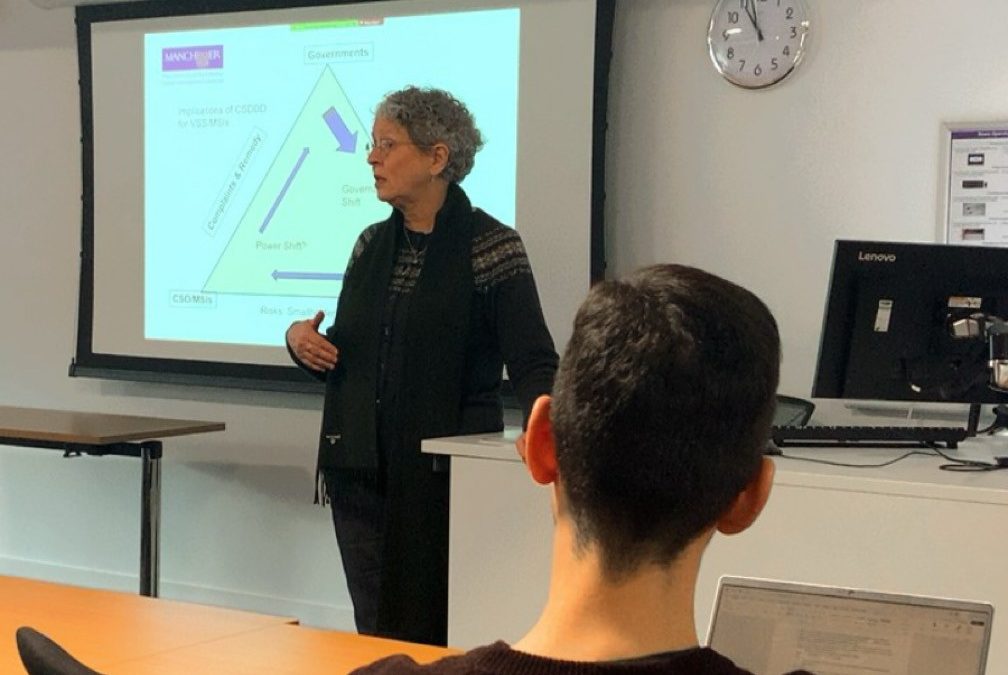
Who holds the power? The state, corporations, and the regulatory turn in governance
Nedson Ng’oma reflecting on regulatory approaches to human rights and environment due diligence in global value chain

Repair Week in Action: Fashion Activism, Upcycling, and Sustainable Solutions
Tetyana Solovey, marking Repair Week, discussing the role of makers and upcyclers in solving fashion industry problems.
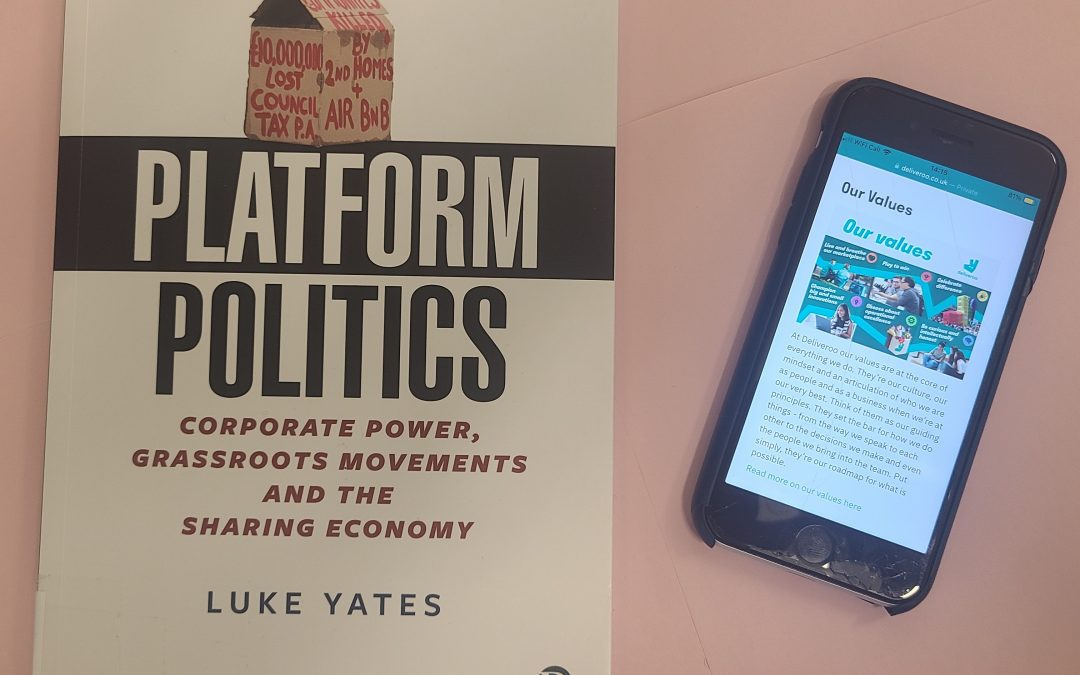
Community or Corporate Control? Insights on Luke Yates’ “Platform Politics”
Mingwei Zhang, Wangshu Liu and Guyeon Kang on the politics of digital platforms
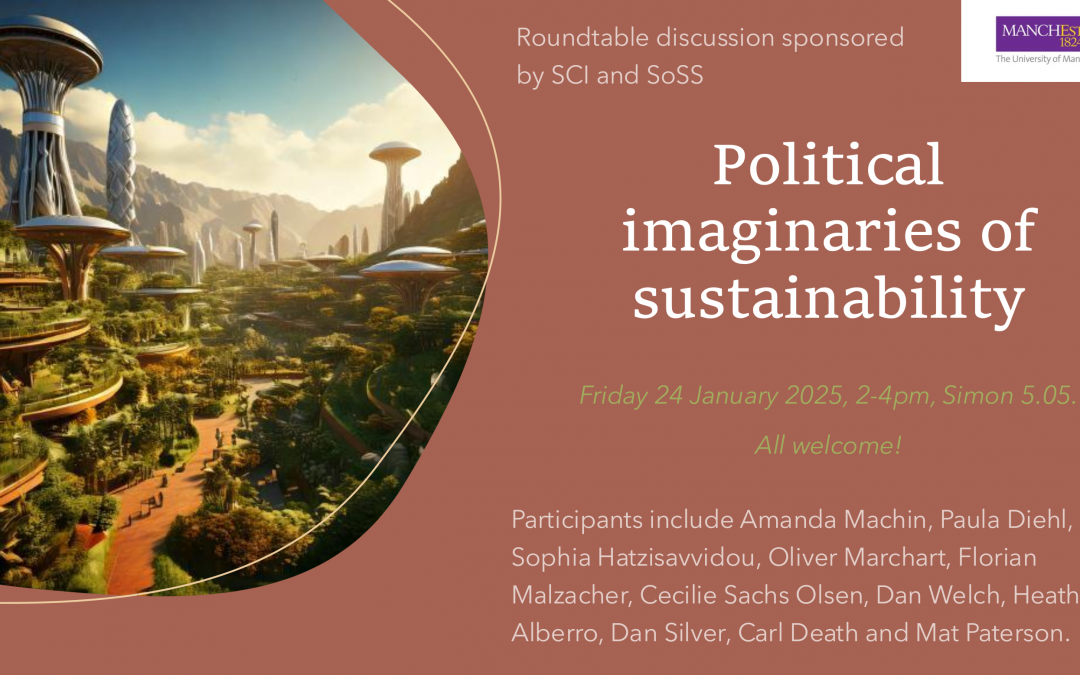
Possible Other Worlds: How imagination enable, shape and constrain social and political transformation
The roundtable ‘Political Imaginaries of Sustainability’ examines whether these imaginaries act as obstacles or opportunities for sustainability transitions
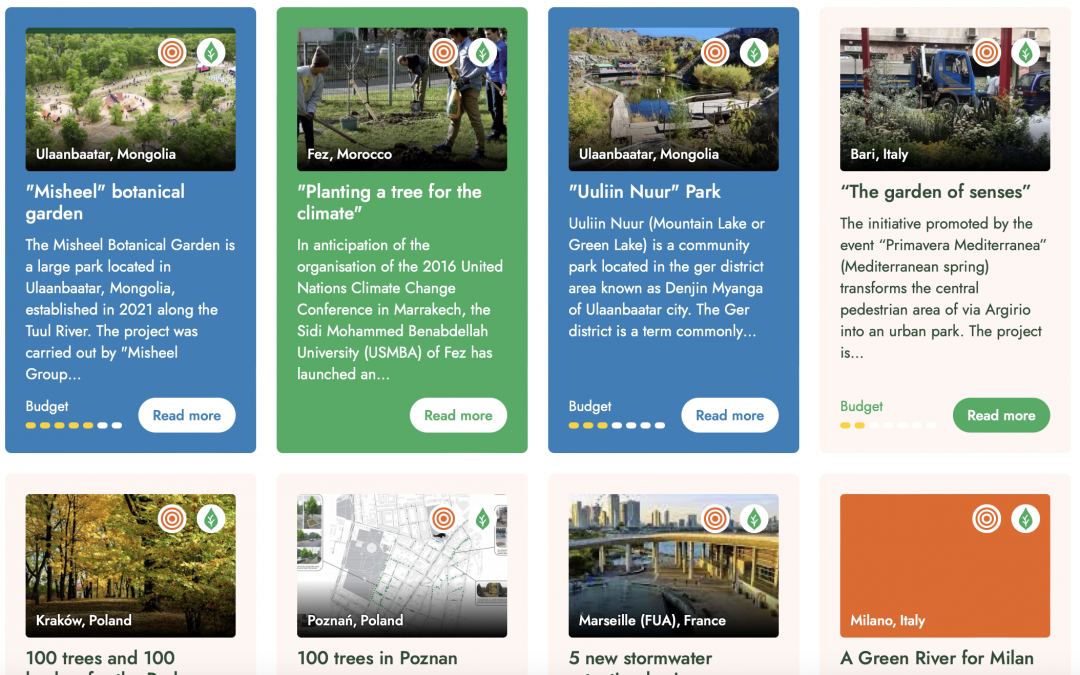
“What is a good climate change society?” SCI Annual Lecture by Harriet Bulkeley
Harriet Bulkeley discussed the practices and politics of nature-based solutions in addressing issues within urban environments.
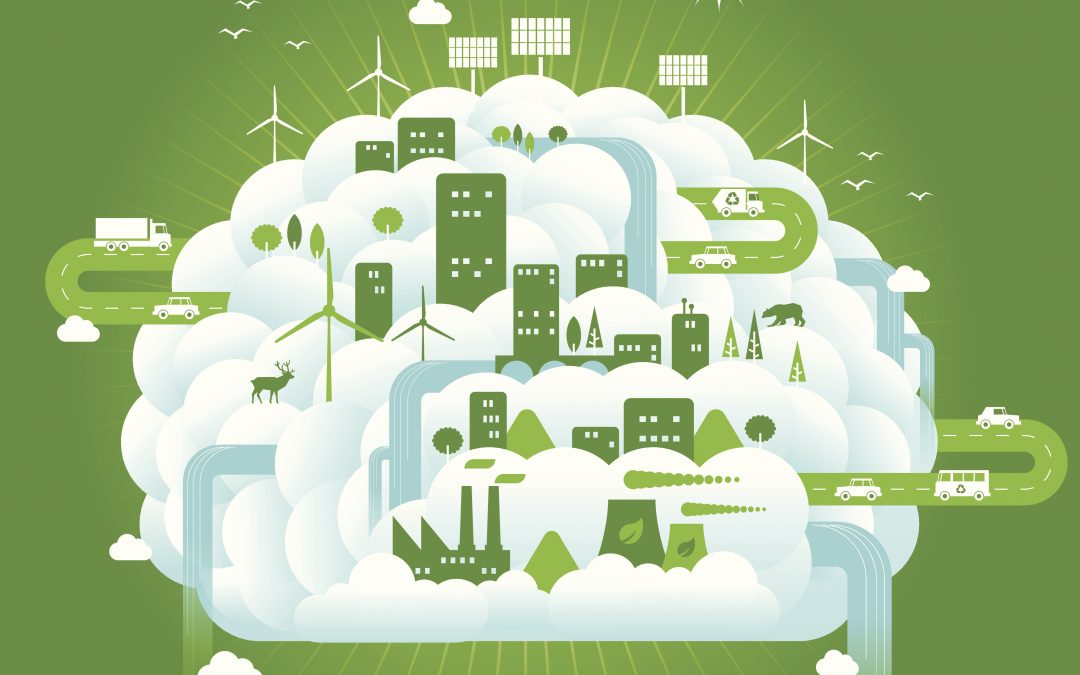
SCI’s 2024 Conference Roundup: From Green Energy to Inclusive Sustainability
As the 2024 conference season comes to a close, we are excited to present a round-up of the events in which SCI members participated.

Exploring Disruptions in Green Energy Transitions
Sandra Barragán and Matthew Paterson discuss the outcomes of a workshop on key disruptions and future research pathways in green energy transitions.

A raised platform – regulating the digital economy
Luke Yates outlines the impacts of digital economy platforms on housing and employment and proposes policy changes in this area.

Foraging for sustainability amongst capitalist ruins
Caroline Cornier, Tetyana Solovey, Tim Siew and Mark Shtanov on sustainability through interdisciplinary lenses

Spectres of the plastics consumer and the need to challenge problematic demands
Torik Holmes and Christina Picken discuss the troubling role played by powerful ideas of the consumer and demand with regard to tackling plastic problems.
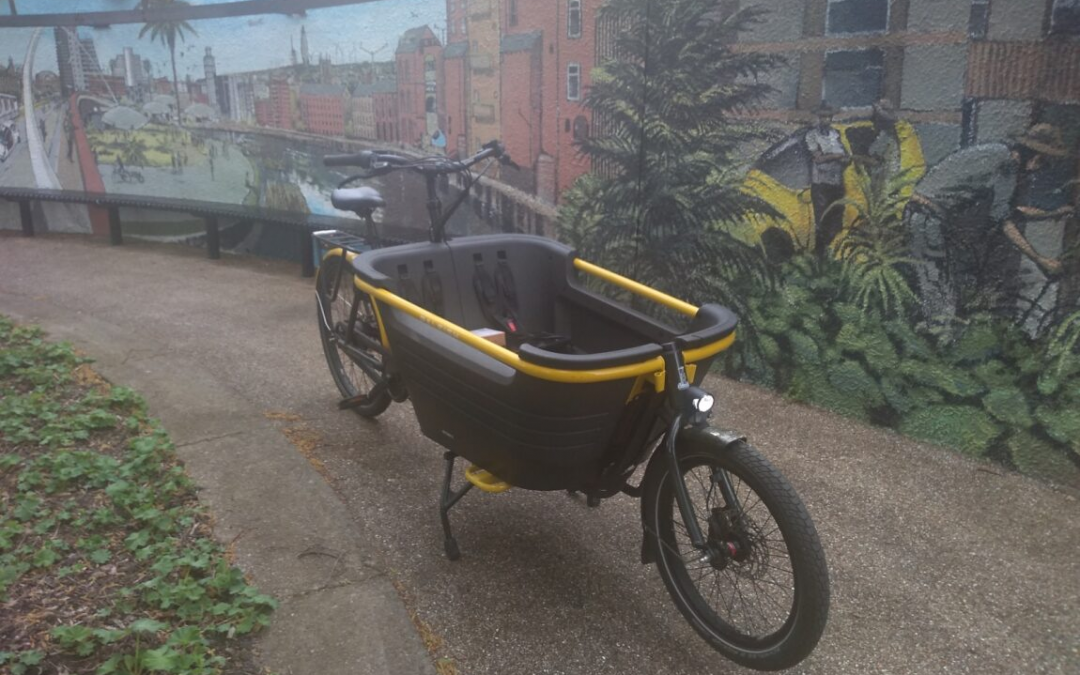
Energy consumption behaviour change: is the UK strategy of ‘leaving it to the market’ a busted flush?
Noel Cass discusses the shortcomings of the UK Government’s approach to climate policy.
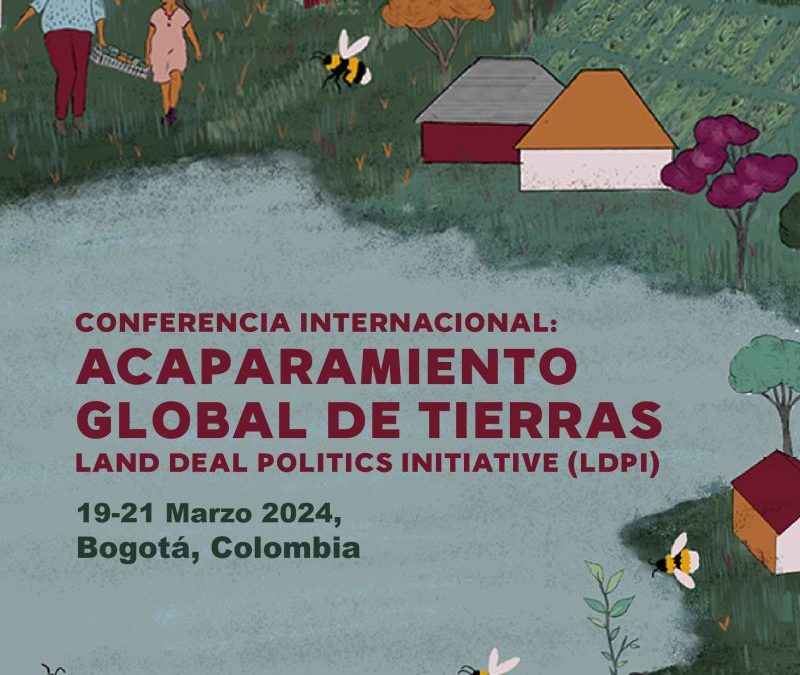
We all have to become better economists
Caroline Cornier reflects on the International Conference on Land Grabbing 2024 in Bogotá, Colombia.
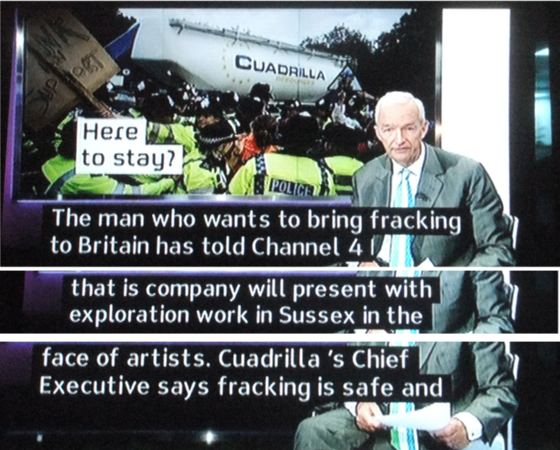
Anti-Net Zero Populism and the future of British climate policy
Matthew Paterson, Stanley Wilshire, and Paul Tobin discuss the types of ANZP rhetoric and important lessons to learn from its (modest) successes.
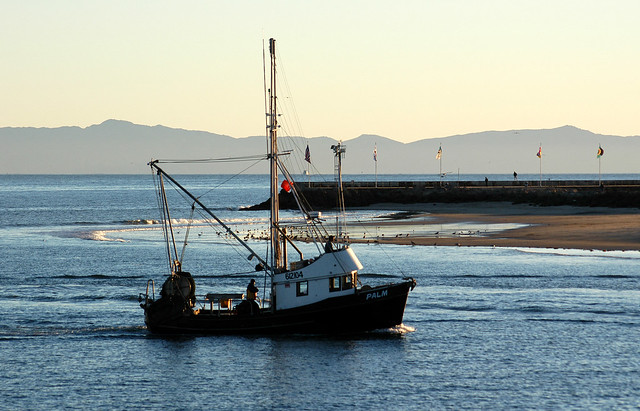
Resilient or environmentally friendly? Both are possible when seafood businesses prepare for long-term risks
Maria Sharmina outlines key points from the research across the UK as part of a project called ‘Diverseafood’.
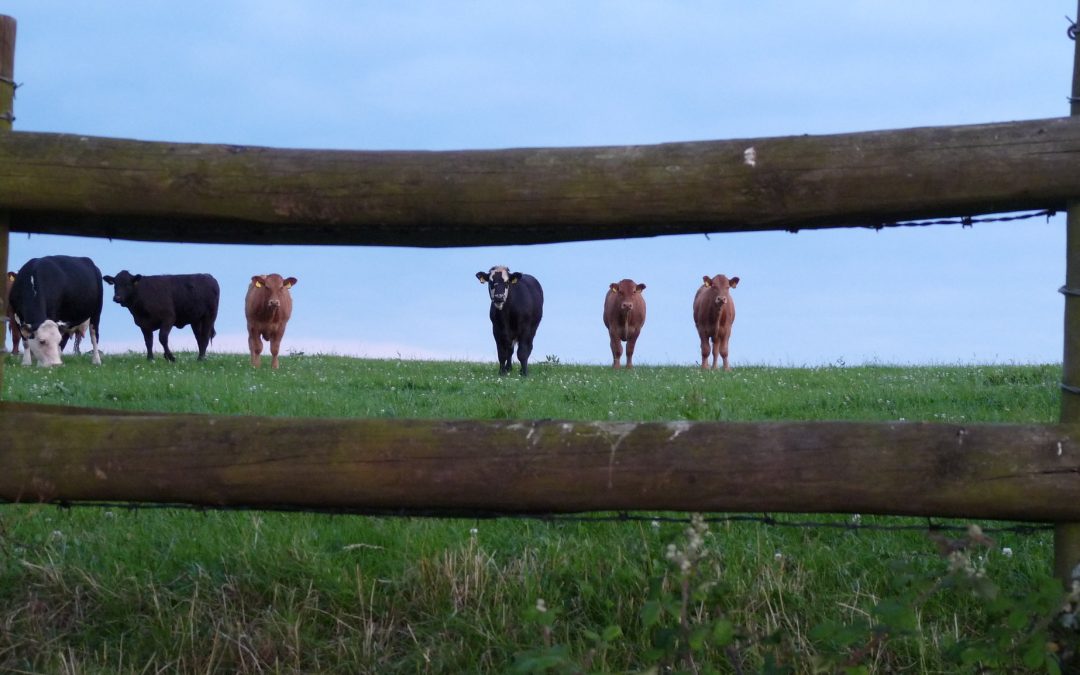
Learning the ABC of resilient and convivial land use: The nexus of Agriculture, Biosafety, and Conservation
Steffen Hirth provides an overview of recent discussions on creating a more sustainable agri-food system and human & nonhuman habitats for planetary and human health.

Central banking, climate finance, and contemporary crises
Matthew Paterson and Jacqueline Best discuss the prospects of central banks taking a more active role in climate policy.
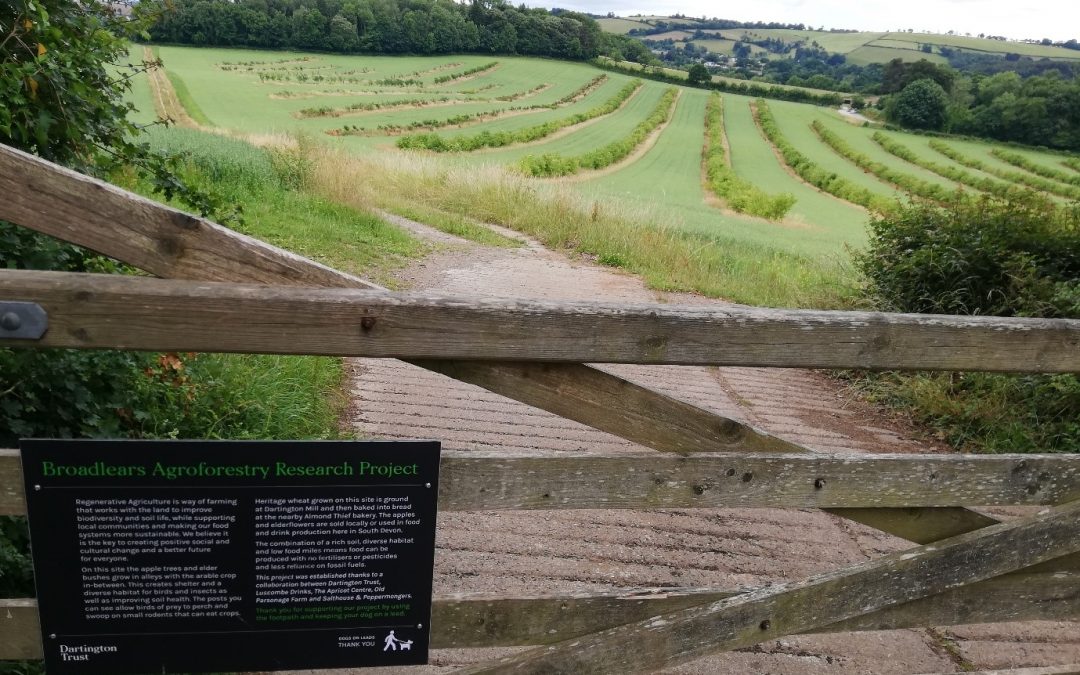
Should we abandon agriculture altogether?
Steffen Hirth, Ulrike Ehgartner, and Ivan Drlička examine the need to create resilient food provision in a net-zero society.
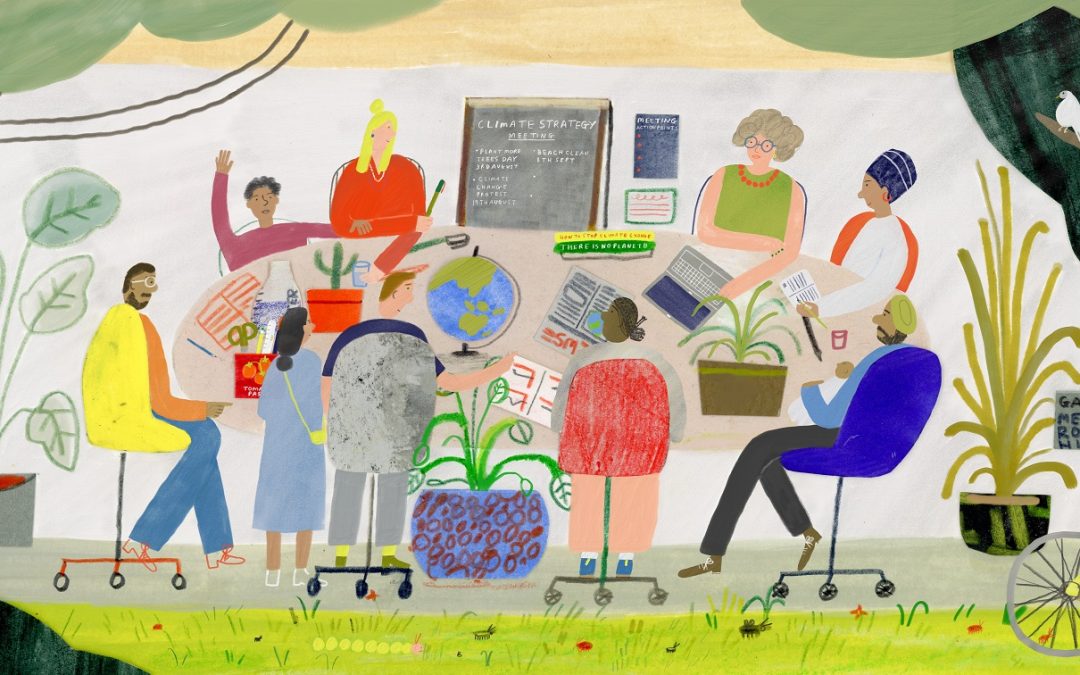
Creative, sensitive and grounded in diverse perspectives: Why we need inclusive climate change education
Catherine Walker, Kit Marie Rackley, and Nerida Jolley analyse how climate change education can address rather than exacerbate eco-anxiety.

Water for Peace and Development: SCI PhD student at World Water Forum in Dakar
Chantal V. Bright on emergent themes from the world’s largest multidisciplinary conference on water.
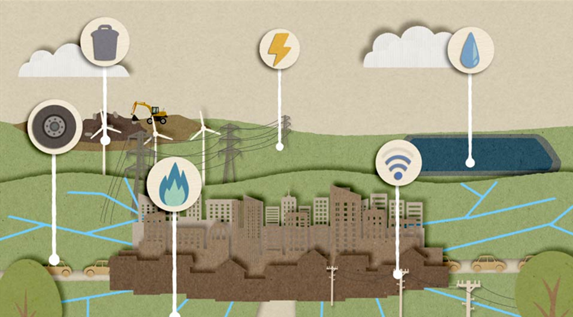
(Re)making infrastructures in response to sustainability and climate emergencies: Challenges, strategies, and opportunities
Torik Holmes, Carla De Laurentis, and Rebecca Windemer examine how infrastructures are acting as platforms through which solutions to climate emergencies can transpire.
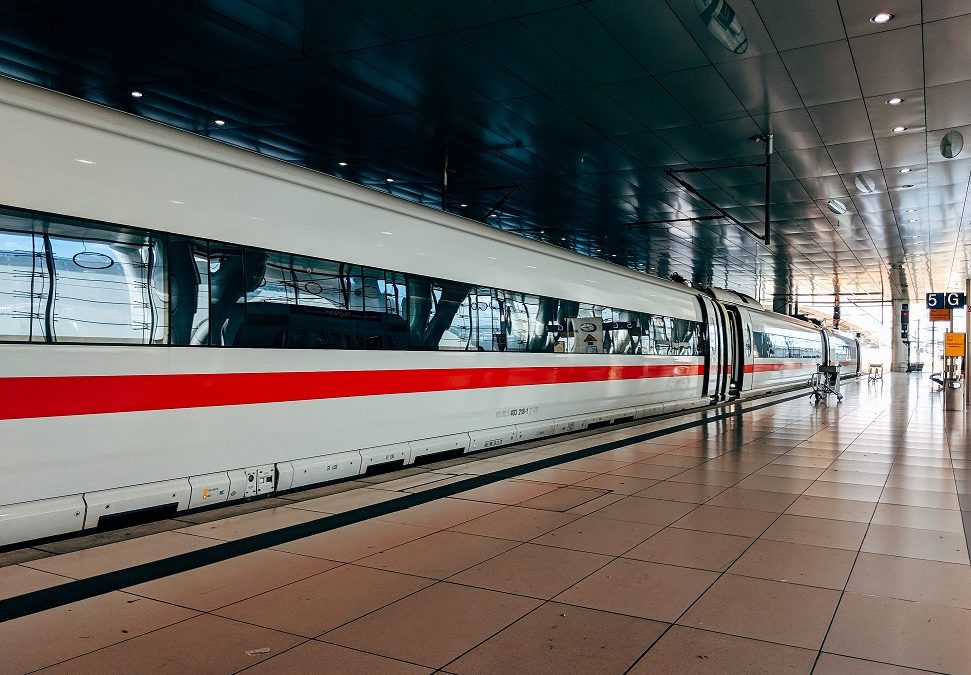
Hidden infrastructures of decarbonisation
Matthew Paterson and Charlotte Weatherill discuss hidden infrastructures that exist as barriers to replacing flights with train travel.
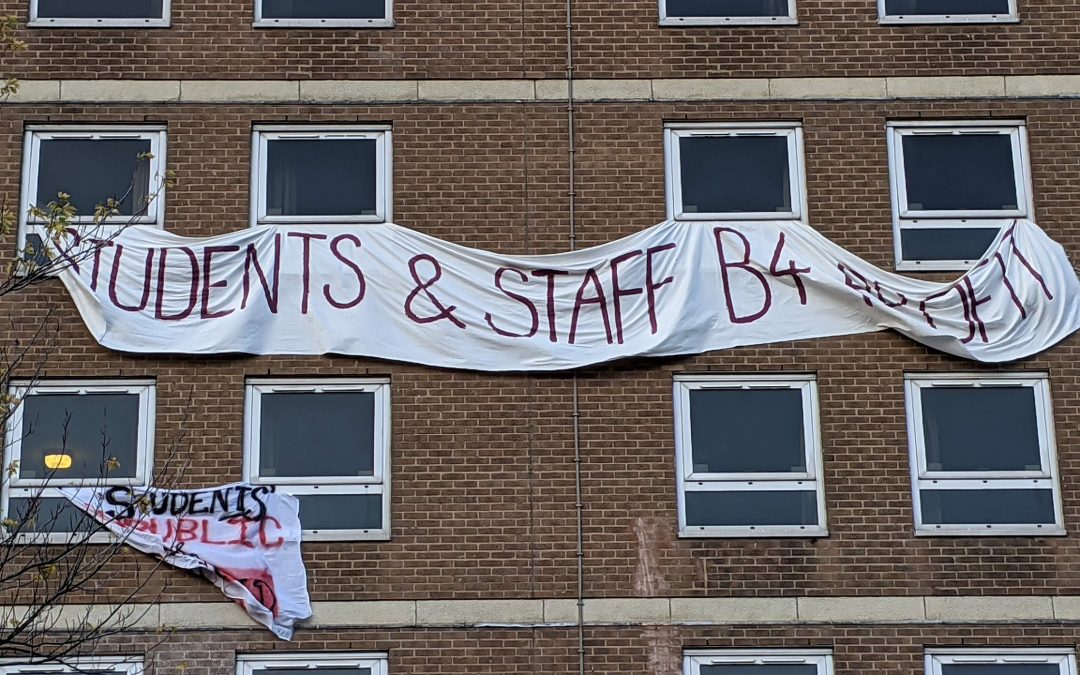
The other side of the fence: Consumption, activism, and the Owens Park tower occupation
Anna-Maria Köhnke explores the role universities and students play in the climate movement.
Citizen Food Futures – event report
Jo Mylan reflects on an event aiming to communicate academic research on the development of more sustainable food systems and facilitate dialogue with the general public and other stakeholders.
Why the success of a green recovery requires engaging with – and learning from – minority communities
Sherilyn MacGregor and Nafhesa Ali examine how achieving net-zero targets will benefit from the inclusion of racialized minority communities in policy debates.
SCI PhD Alice Swift reports on a recent action by the German climate activist group ‘Ende Gelände’
Ende Gelände mobilised thousands in Germany in October, targeting both coal and gas and developing tactics to protect activists from coronavirus transmission.
Waste management and COVID-19 – What have we learnt so far?
Mariel Vilella discusses how COVID-19 has shaken up our waste management systems.
Food support provision in Covid-19 times: Preliminary results from a study based in GM
Filippo Oncini reflects on the results of a study aiming to understand the obstacles, needs and prospects of food support providers in Greater Manchester [1] after the Covid-19 peak.
It’s time to talk about a feminist green new deal
Sherilyn MacGregor and Maeve Cohen on ‘rainbow recovery’ and the need for a recalibration of the social and economic priorities.
COVID-19, ecological justice, and veganism
Hannah Battersby explores how the worldwide animal agriculture industry is a key driver of zoonotic disease, pollution, climate change, and biodiversity loss.
Lockdown and eating out
Jennifer Whillans, Jessica Paddock, and Alan Warde reflect on the history and significance of dining out in the UK and argue against apocalyptic speculation about what might become the ‘new normal.’
Changing behaviours, transforming society
With the search for a COVID vaccine still ongoing to enable a safe way out of the pandemic, the debate about what comes after COVID is currently in full swing.
How coronavirus reveals our unbreakable bond with single use plastic
As coronavirus bears down on society, single-use plastic steps up in an unprecedented way.
Imagined futures of consumption: Lay expectations and speculations
Imagined futures of consumption have played a central role politically and economically since the end of the Second World War.
All food is “plant-based” – particularly meat and dairy
Academics, policy makers and businesses increasingly consider a shift towards so-called “plant-based” diets that principally require less land, energy, and other resources.
Can we reduce water demand to 80 litres a day? And what can the government do to support it?
Dr Claire Hoolohan (Tyndall Centre for Climate Change Research) and Dr Alison Browne (Sustainable Consumption Institute) reflect on their consultation submission to the Department for Environment, Food and Rural Affairs on measures to reduce personal water use.
The Sustainable Consumption Institute at the European Sociological Association Conference 2019
SCI research was well represented at ESA2019 in Manchester.
Inequalities and climate change
World scientists have collectively endorsed the proposition that the world is facing a climate emergency. Social scientists need to address the burning issue of inequality at the heart of this emergency.
International Repair Day – the right to repair and the politics of practice
As International Repair Day celebrates its third anniversary, Ulrike Ehgartner, Steffen Hirth and Dan Welch discuss the “Right to Repair” and endangered practices.
The Green New Deal’s contradiction
New infrastructure and redistribution may boost carbon emissions.
Don’t bet on the UN to fix climate change
It’s failed for 30 years.
What the Amazon fires tell us about the geopolitics of the climate emergency
Two climate denying Presidents, growing demand for soya in China and deforestation in Brazil have created the perfect climate-change storm, argues Mark Harvey.
A vegan meat revolution is coming to global fast food chains – and it could help save the planet
A few years ago, convincing meat-free “meat” was nothing more than a distant dream for most consumers. Meat substitutes in supermarkets lacked variety and quality. Plant-based burgers were few and far between in major fast food outlets – and meaty they were not.
Vegan is the new vegetarian – why supermarkets need to go ‘plant-based’ to help save the planet
Veganism is arguably the biggest food trend of the moment.
New net zero emissions target won’t end UK’s contribution to global warming – here’s why
Joe Blakey and Marc Hudson disagree with the UK Government’s much vaunted target of zero-carbon by 2050 constitutes the country’s “highest possible ambition”.
Dr Alison Browne presents to Defra’s Joint Water Evidence Programme ‘Grand Challenges’ policy workshop
The SCI’s Ali Browne was invited to present to the Department of Environment, Food and Rural Affairs and Environment Agency’s ‘Joint Water Evidence Programme’ policy workshop on 6 June 2019.
Education for sustainability, action-oriented research and the value of building bridges
During March 2019 the Sustainable Consumption Institute held a series of activities around sustainability education and hosted Rachel Trajber, Cemaden (National Monitoring and Early Warning and Centre of Natural Disasters).
Why the meat industry could win big from the switch to veggie lifestyles
One of the largest meat processors in the UK, has launched a plant-based meat alternative. Before long, the meat producers could take over this growing market for meat-free alternatives.
Everyday thriftiness: Austerity and sustainability
With 12.4 million people living in absolute low income poverty in the UK in 2016/17, continued uncertainty from Brexit, and persistent issues with the new benefits system, Universal Credit, life remains bleak for many in the UK.
School climate strikes: What next for the latest generation of activists?
Last Friday students across the UK (and the world) went on strike, leaving their lessons to protest about the lack of effective action on climate change.
Victims, saviours or villains? Children in popular climate imaginaries
With the school children’s #ClimateStrike movement reaching the UK, Catherine Walker explores how children are framed in climate change discourse and asks how can children moves us beyond our current political impasse?
Gilets jaunes, Extinction Rebellion and neoliberal climate policy
Two protest movements erupted in the UK and France on November 17, with apparently opposite logics. Matthew Paterson argues that both movements result from the the way carbon pricing has been both regressive socially and woefully inadequate in climate terms.
Meat-free alternatives are dull – we need exciting vegan Christmas dinner ideas
Before Christmas SCI doctoral researcher Malte Rödl had a piece published in The Conversation challenging cooks to look beyond “meat –eating without the meat”. With ‘Veganuary’ in the headlines we thought it was a viewpoint still worth looking at.
Professor Mark Harvey – a political and intellectual trajectory
The SCI co-sponsored a conference to mark the retirement of Professor Mark Harvey. Read Mark’s inspiring talk on the political and intellectual trajectory of his career.
To tackle inequality, we must first understand the exploitation that creates it
We need a theory of exploitation fit for the twenty-first century, argues Mark Harvey.
Why France banned meat names for vegetarian alternatives
France recently passed an amendment to its Agriculture Bill, prohibiting any product that is largely based on non-animal ingredients from being labelled like a traditional animal product.
Can a city ever be truly ‘carbon neutral’?
Following the Greater Manchester Green Summit, Sherilyn MacGregor and Joe Blakey ask whether the vision of a ‘carbon neutral’ city-region is all that it appears.
Greater Manchester’s Green Charter: The responsibility of whom?
In wake of Andy Burnham’s Green Summit, Julia Kasmire investigates whether the Greater Manchester Combined Authority (GMCA) will take the necessary steps to take responsibility for achieving carbon neutrality.
The SCI organised a workshop on the topic of meat consumption, non-meat consumption and sustainability as part of the ESRC Festival of Social Sciences
Whilst there is a broad consensus amongst academics and other experts that meat needs to be addressed as a social-ecological problem, the minutiae of how to do so are less certain.
Planet 50:50? Linking labour and environment this International Women’s Day
This blog by the SCI’s Sherilyn MacGregor was originally posted for International Women’s Day March 2017.
On the ‘meat edge’? Meat consumption and reduction in middle class urban China
Drawing on insights from a qualitative study of meat eating in urban China, Alison Browne, Josephine Mylan and Zhu Di suggest there is a need to re-think the dominant view on changing consumption.
Environmental feminists taking up space at Conference of Parties (COP)
SCI PhD researcher Joanna Wilson reports back, suggesting that the voices of environmental feminists remain sidelined, despite the conference being branded as ‘inclusive’ and ‘participatory’.
How to solve the ‘monster’ fatberg problem
Fatbergs – enormous solid masses of oil, grease, wet wipes and other hygiene products that congeal together to cause major blockages – are wreaking havoc on the sewers of cities around the world.
The real story behind the huge crowds gathered at iPhone launches
Apple’s special edition iPhone X release – what sane person would queue overnight for an over-priced, at best incrementally-changed gadget?
SCI at the British Sociological Association Conference 2017
Jessica Paddock reports on SCI contributions to the BSA on home turf in Manchester.
The International Sustainability Transitions Conference 2017
Cameron Roberts reports on IST 2017 and the SCI’s contributions.
The SCI at the GRF: ‘Sustainable lifestyles, livelihoods, and the circular economy’
Wouter Spekkink reports on the third international conference of the Global Research Forum on Sustainable Production and Consumption.
The European Sociological Association 2017
Dan Welch reports on the SCI’s contribution to the ESA’s 13th biennial conference in Athens.
Sustainability: The new alchemy?
Julia Kasmire asks what sustainability and alchemy have in common? And what does this mean for the sustainability movement?
Small steps for creating community resilience – The Make Do and Mend Expo
In June, Dr Helen Holmes held The Make Do and Mend Expo – an interactive event that brought together third-sector organisations to debate the future of community resilience.
Re-making Greater Manchester sustainably
How might the newly elected Mayor of Greater Manchester remake Greater Manchester sustainably? Joe Blakey reflects on a recent workshop by the SCI’s Mike Hodson and Sherilyn MacGregor in his latest blog post.
From meat-free days to meat-free diets?
Last Monday was World Meat Free Day. In the first blog of the SCI’s new website, Jo Mylan and Nicklas Neuman argue ‘Meat Free’ days are only one piece of broader puzzle of how to limit the effects of industrial meat production.
Following the action: An approach for studying the coordination of practice
A principle methodological challenge for any research is the identification of the core unit of analysis and the ‘entry point’ for empirical enquiry. Both depend on the research questions to hand. For the study of practices these challenges are particularly acute.
Divestment, destabilisation, decarbonisation?
With The University of Manchester considering divesting its assets from fossil fuel related industries, Viki Johnson considers whether divestment can really destabilise an industry.
Overcoming ‘speciesism’: how to include other living beings
In this contribution, Anna Wienhues and Steffen Hirth use theoretical considerations from philosophy and sociology to explore the ways in which ‘the nonhuman’ is – or is not – taken into account.
Turning climate governance upside down
A rethink of contemporary wisdom on governing the climate is increasingly urgent. Successive climate summits, strategies, targets and action plans have been implemented, but the chances of staying within anything like safe temperature increases are diminishing fast.
Renewables in South Australia: Blame games and framing battles
With South Australia’s increase in renewables blamed for a blackout caused by high winds, Marc Hudson examines the ‘framing battles’ taking place in Australia.
Blog archive
Browse our extensive range of blog posts from previous years. We all have to become better economists by Caroline Cornier (22 April)Energy consumption behaviour change: is the UK strategy of ‘leaving it to the market’ a busted flush? by Noel Cass (23 April) Central...
Flooding, consumption and the normality of everyday life
The latest blog by SCI PhD student Patrick Gould weaves together reflections on climate change, disruption, time, consumption, normality and the circular economy, with current research and business and policy responses.
Light and sustainability: Concepts, practices, experiment
The SCI recently hosted the latest Light and sustainability: Concepts, practices, experiment seminar, read Cary Monreal Clark and Joanne Edwards.
The wider environmental effects of food and drink packaging
Cary Monreal Clark discusses the wider environmental effects of food and drink packaging in his latest blog.
How to make cooling measures cooler?
The early summer publication of the Adaptation Sub-Committee (ASC) Progress Report 2014 Managing Climate Risks to Well-Being and the Economy seems to have had a limited impact on the public’s attitude regarding the growing risk of heatwaves in the UK.
What is happening to the sustainable city?
What is happening to the sustainable city? Why is this question arising now? And does it matter? These concerns are addressed in our recently published edited book, After Sustainable Cities?
Is it time to take gender seriously in sustainable consumption?
SCI researcher Jo Mylan reflects on Professor Oriel Sullivan’s seminar at the SCI (6 May): ‘Domestic outsourcing and multitasking – how much do they really contribute to women’s dual burden?’
